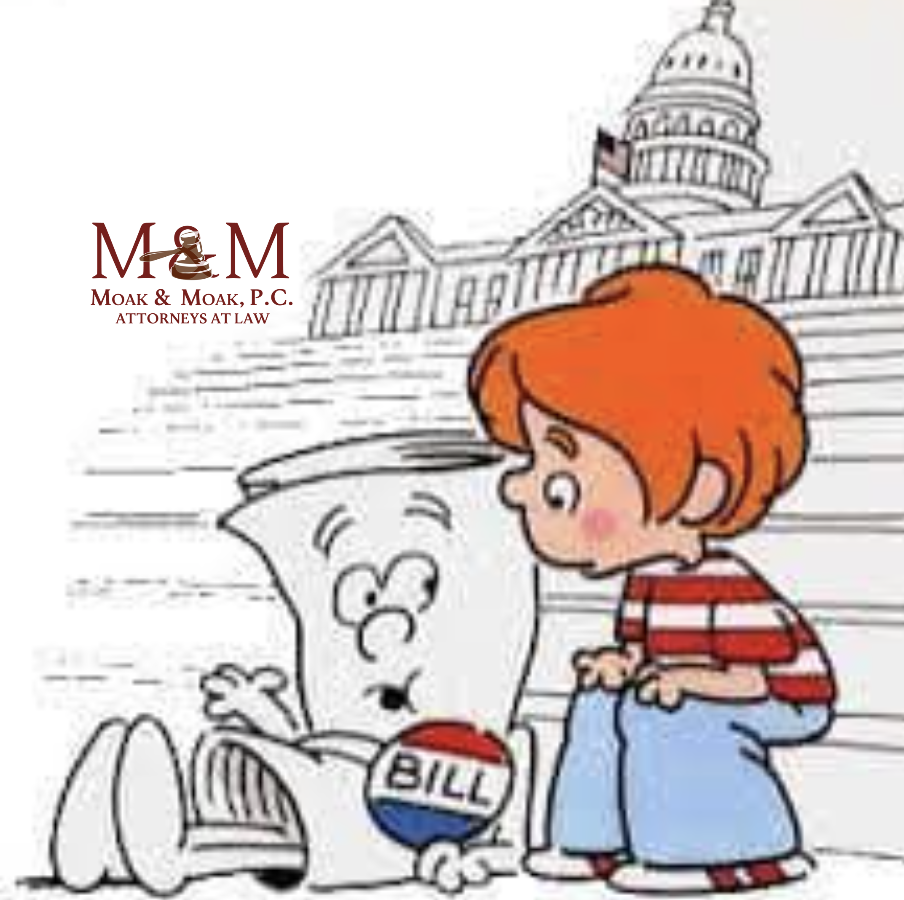As we watch the Houston Astros approach the end of the regular season, folks in Washington D.C. are talking about two significant changes that could affect us all. Senator Bernie Sanders has sponsored the 99.5 Percent Act (99.5% Act) and the Biden Administration is working on the Sensible Taxation and Equity Promotion (STEP) Act.
While these are just bills that have been proposed in Washington, those of us that remember the old School House Rock “How a Bill Becomes a Law” cartoon, know how real this change is. Right now under current law, there is a lifetime exemption of $11.7 million for a single person and $23.4 million for a couple. This means if the gross estate value is less than the lifetime exemption, no tax would be owed. However, the 99.5% Act would change the estate tax exemption to $3.5 million per person and $7 million per couple.
If you own a business, real estate or a farm or ranch, this will likely effect your estate. When you consider the value of a business, real estate, house, equipment, investment or savings accounts, vehicles and cattle, it does not take long to reach $3.5 million.
Additionally, the 99.5% Act would increase the tax rate of the federal estate tax. Currently, the estate tax rate is set at 40%. Under the 99.5% Act there would be a phased increase up to 65% depending on the value of the estate.
While the estate tax change proposed may only affect those with large estates, the STEP Act proposed would affect everyone. Senator Chris Van Hollen has proposed to eliminate the stepped up basis, a concept under capital gains taxes. Capital gains taxes are due when a person sells an asset that appreciated or increased in value since it was purchased. For example, if a person purchased a tract of land in 1970 for $25,000 and later sells it for $125,000, capital gains tax would be owed on the $100,000 increase in value. That would be a $20,000 tax.
Right now, under our current laws, if you sell an appreciated asset, capital gains taxes are paid on the increase or gain of value. This is true whether the asset be baseball cards, stocks or real estate. It becomes a major issue for real estate because of the rapid increase in real estate values.
The benefit of a stepped up basis is that when an asset is inherited the original cost basis may be stepped up to the value of the asset at death, rather than the original purchase price, if an appraisal is obtained. So, in the example above, the $100,000 gain would be wiped out because the new basis would be the appraised value. That represents a significant savings.
When applied to family farms and ranches, this can be a huge savings because most people in agriculture are in it for generations, the farm or ranch having been purchased years ago for as little as $10 per acre. Without the step up in basis, the capital gains tax would be massive when sold.
It is important to note the STEP Act would also impose capital gains taxes on unrealized gains at a person’s death. Currently, a person does not owe capital gains tax until an asset is sold. The STEP Act would change this to impose capital gains taxes when assets are transferred at death.
These proposed bills would not only impact agriculture, but also processors and small businesses across the country. If you own real estate, have an agriculture related business, a small business, home, vehicles, equipment, investments and savings, then you should review your estate plan (i.e., Last Will and Testament and powers of attorney).
The Agricultural and Food Policy Center (AFPC) at Texas A&M University is conducting a study on the impact of these proposed acts, the Economic Impacts of the Sensible Taxation and Equity Promotion Act. Contact Texas A&M University and your congressman to object to these proposals. Now is the time to be vocal and heard.
You should talk to a professional who can guide you and help you formulate a strategy if these proposed bills become law. To help you get the insight and planning you need to help you, please come and see us now, because planning can take time to implement.
Sam A. Moak is an attorney with the Huntsville law firm of Moak & Moak, P.C. He is licensed to practice in all fields of law by the Supreme Court of Texas, is a Member of the State Bar College, and is a member of the Real Estate, Probate and Trust Law Section of the State Bar of Texas.

